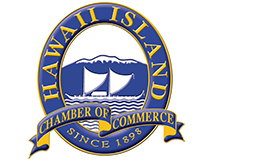We often talk about how University of Hawai‘i at Hilo brings the world to Hilo through student recruitment. We are indeed proud of our international students, and February 24th saw the return of International Nights at the UH Hilo Performing Arts Center. In front of a packed house, our international students and community members performed traditional and modern dances. The crowd was enthusiastic and the students were joyful. It was a wonderful expression of our cultural diversity on campus.
UH Hilo also brings the world to our community through academic events.
In February, more than 50 representatives from the National Coalition of Native American Language Schools and Programs convened at UH Hilo’s Ka Haka ‘Ula o Ke‘elikōlani College of Hawaiian Language and the university’s ‘Imiloa Astronomy Center, the world’s only Indigenous bilingual science center. The coalition’s mission is to advocate for the use of Native American languages as the medium of instruction in community-led schools and programs across the United States.
The summit at UH Hilo drew educators from 14 U.S. states and Guam (representing 25 languages) and federal officials from the Office of Indian Education to discuss the achievements and challenges of Native American language medium programs. UH Hilo is the perfect location for this type of collaborative effort, where our own model Indigenous programs inspire many others in their own language revitalization work.
March 10-11, we hosted the Second Hawaiʻi International Conference on English Language and Literature Studies. Scholars from across the United States and the world visited our campus and presented their scholarship on research and teaching in English language and literature.
The meeting was sponsored by our English department in partnership with San Pedro College, Holy Cross of Davao College (Davao City, Philippines), and Hawai‘i Association of Filipino Educators. Because of cultural and linguistic diversity, Hilo is the ideal setting for such a conference, and the meeting gave our faculty and students exposure to new ideas in their field. It also allows us to highlight some of the great work our faculty are doing around the teaching of language and literature.
Later in the year, UH Hilo will host the 5th International Conference on Multidisciplinary Filipino Studies. This conference will expand our scope beyond language and literature to also include agriculture, area studies, business, education, engineering, law,politics, government, and tourism, among other subjects.
Attendees will have opportunity to not only enhance their knowledge of their own fields but also to see how their work intersects with other fields. The Filipino studies program at UH Hilo has envisioned for this conference the coming together of students, teachers, scholars, academic, administrators, and others. As one in four residents of our island has some Filipino ancestry, this conference, too, is an appropriate meeting for us to host, and we are happy to welcome guests from the Philippines to our campus and community.
Our relationship with the Philippines has evolved over the years.
In early March we signed a Memorandum of Understanding with Eastern Samar State University in the Philippines intended to grow cooperation between the two universities through virtual classroom collaboration and faculty research. Located in the Eastern Samar province in a rural area next to beaches and rain forest, Eastern Samar State University is noted for strong agriculture, forestry, environmental science, tourism, and teacher training programs.
The MOU is an example of Collaborative Online International Learning or COIL, a movement to increase virtual classroom interaction between students and faculty of partner universities in different countries. COIL allows us to connect even when we cannot travel, and was truly an asset during the pandemic.
The world comes to UH Hilo through these events, both in-person and online, bringing a rich diversity of culture, language and ideas enabling us to grow and thrive as a university with excellent learning opportuities for our students. These opportunities will inspire some of our students to study abroad. For others, this taste of the world will inspire them to think about the global implications of what we do right here at home.
It is often said that geographically we are the most isolated place in the world, but we are also in the center of it all and, as we welcome guests to our island home, we have much to share.
With aloha,
Bonnie D. Irwin


Recent Comments